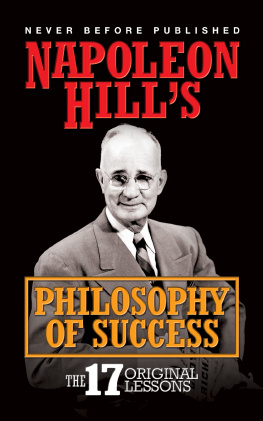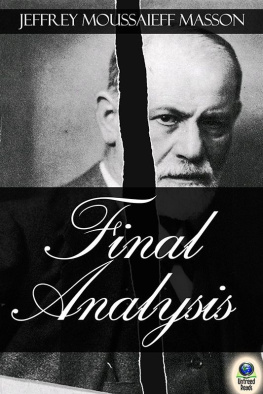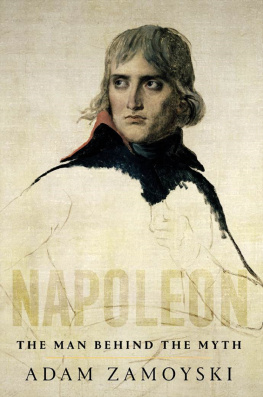This edition is published by PICKLE PARTNERS PUBLISHING www.picklepartnerspublishing.com
To join our mailing list for new titles or for issues with our books contact@picklepartnerspublishing.com
Text originally published in 1896 under the same title.
Pickle Partners Publishing 2013, all rights reserved. No part of this publication may be reproduced, stored in a retrieval system or transmitted by any means, electrical, mechanical or otherwise without the written permission of the copyright holder.
Publishers Note
Although in most cases we have retained the Authors original spelling and grammar to authentically reproduce the work of the Author and the original intent of such material, some additional notes and clarifications have been added for the modern readers benefit.
We have also made every effort to include all maps and illustrations of the original edition the limitations of formatting do not allow of including larger maps, we will upload as many of these maps as possible.
NAPOLEON
AND
THE FAIR SEX .
Translated from the French of
FRDRIC MA SSON
WITH PORTRAITS
NAPOLEON AND THE FAIR SEX.
INTRODUCTION.
A LARGE proportion of the chapters in this book appeared in the literary supplement of the Figaro from April to September, 1893. The idea of writing them was suggested to me in the following manner.
In the Chronicle published periodically in connection with the journal, an anonymous correspondent asked the questions: With what women is Napoleon known to have had temporary relations as a young man, as Consul, and finally, as Emperor? Had he an absorbing passion for any one woman? And if so, for whom?
Answers to these queries appeared at intervals, but were far from convincing. It came to the knowledge of M. Privier, the editor of the literary supplement, that I had for some time past collected documents bearing on the private life of Napoleon. He applied to me for the desired information, and I gave it. But it was impossible to do justice to the subject within the prescribed limits, and my summary was but a brief outline of the facts I had gathered. It was then suggested that I should fill in this outline, and the result was a series of articles, in the form and production of which I was allowed absolute liberty, but to which the Figaro offered a hospitality I now most gratefully acknowledge.
The articles found favour with the public, and were quoted in many journals, both at home and abroad. But on the other hand, they drew down upon me no small share of anonymous abuse and covert reproach.
Many of those with whom I had stood shoulder to shoulder in the Bonapartist ranks between 1870 and 1879, from the fall of the Empire to the death of the Prince Imperial, took exception to these articles as ill-timed and disrespectful. Though they acquitted me alike of dissimulation of present sympathies, or treachery to past traditions, they heldand some among them openly told methat my passion for writing, my desire to figure prominently in a well-known review, and to cater for a public greedy of unpublished gossip, had seduced me into revelation and discussion of matters I ought to have suppressed. They pronounced my Bonapartism not at all to their liking, and declared that a devotee of Napoleon who dealt thus with his memory was hardly to be distinguished from his enemies.
Such were the accusations brought against me. I seek neither to exaggerate nor to minimize them. It would be easy to pass them over in silence. But for twenty years I shared the passions, the hopes, the joys and sorrows of my accusers. The friendship of many among them is very dear to me; nor would I willingly forfeit the esteem of any. I therefore gladly take this opportunity of justifying myself. I ask the indulgence of a public to whom these disputes are of little interest, to whom my very existence is almost unknown, who are ignorant of my past, and who may look upon these pages as a superfluous affix to the book for which they have paid their money. But hitherto my loyalty has never been called in question. I have held my course with all singleness of heart and purpose, and it would ill become me to shrink from an explanation which has long seemed to me necessary, and has now become imperative. The present book is the first of a series of studies I propose to publish successively. In these it is my intention to give the result of my researches with absolute independence. I therefore owe it to my old political friends to explain what led me formerly to join their ranks, and why I now feel at liberty to follow my own bent, and write after my own fashion, recognizing in them no rights either as dictators or censors.
The Bonapartist staff after 1870 was largely recruited from the ranks of the Orleanist and Legitimist parties; even those sometime supporters of the Revolution of i 848 who had rallied to Prince Louis Napoleon were largely influenced by reactionary sympathies. They were all pledged to the cause of the fallen Empire by virtue of places they had held, favours conferred on themselves or their families, anxiety to play a new part, and a very natural ambition to recover a lost position, or achieve one yet more brilliant.
They prided themselves on their knowledge of the sole system of administration proper to their country. This system they had applied with unquestionable ability, with a rectitude to which the world is now beginning to do tardy justice, and with a professional equity no longer to be found among politicians. Each one among. them may fairly claim to have largely contributed to the material prosperity enjoyed by. France for forty years. They had all the virtues of their caste, together with one not common in that castethe virtue of self-sacrifice.
They were agreed that in 1852, as in the year XII., the Empire was clearly in principle a delegation of the national sovereignty, Great therefore as was the repugnance of some among them to universal suffrage, they were bound to refrain from overtly attacking it. But they held the rights of discussion already acquired to be amply sufficient, resigned themselves much against the grain to a new plbiscite, and looked with abhorrence on all schemes of democratic government which ignored hereditary rights. The Empire found favour among them, not only because it was an authoritative system agreeable to men who frankly detested
Parliamentarianism,at least so long as they themselves had no part in it,but because they saw in its dynastic and hereditary formula practical compromise between the monarchy they regretted, and those elements of democracy they recognized as inevitable. They beheld in the Emperor, not the predestined organizer of a new society, but the guardian of the interests of the old. On these issues, the majority of them were so closely allied to Conservatism, that they were finally merged among the Conservatives, or partisans of the two Bourbon dynasties. With these they were agreed on all points, save that of the origin of authority, and some few secondary details of its application, and doubtless had a Napoleon set himself to impugn their doctrines, they would have sacrificed the leader to the creed.














